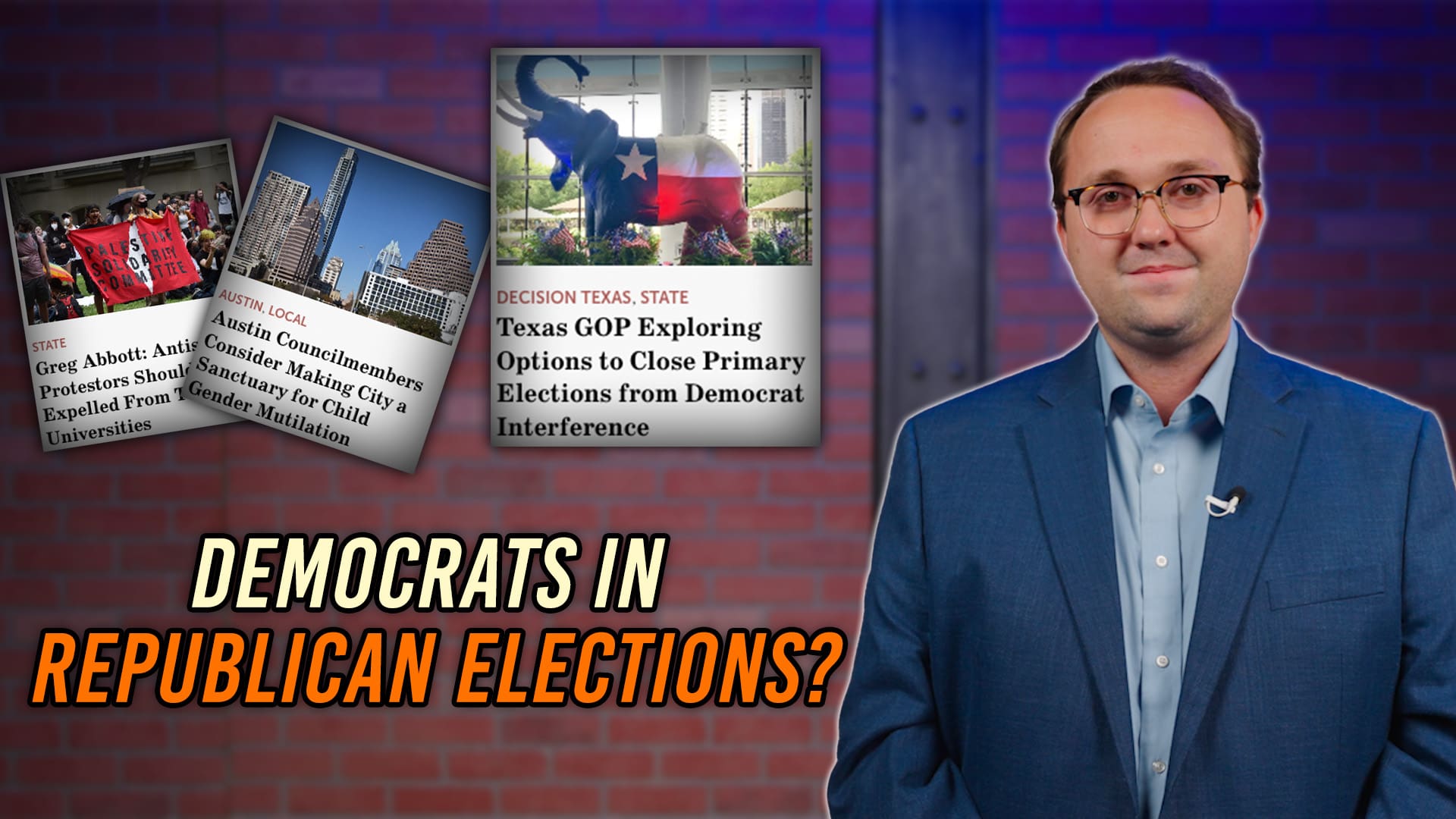Following a Democrat-led impeachment of Attorney General Ken Paxton in the Texas House of Representatives, the Texas Senate is now slated to take up the matter of whether Paxton should be permanently removed from office. However, since the House’s allegations repeat Paxton’s 2022 campaign opponents’ talking points, the senators have no lawful basis for removing Paxton from office.
Texas Government Code 665.081 sets out the policy of this state of respecting the wisdom of voters. Referred to as the “forgiveness doctrine,” that section is titled “No Removal for Acts Committed Before Election to Office” and reads, “An officer in this state may not be removed from office for an act the officer may have committed before the officer’s election to office.”
The Texas Supreme Court in 1924, in Reeves v. State, expounded on this policy, explaining:
[T]he phrase “prior to his election to office” would, and is intended to, apply to a re-election as well as election in the first instance, since the re-election of the same officer is in legal effect the same as an original election. As the Constitution does not provide for continuity of terms of office, each “term of office” legally becomes an entity, separate and distinct from all other terms of the same office. This being so, the Legislature doubtless intended in the enactment of the statute to provide that an officer should not be removed for official misconduct except for acts committed after his election to the term of office he is then holding and from which it is attempted to oust him.
In Texas we have frequent elections …. The main, if not the only, justification for such frequent elections is that thereby the elections are kept in the hands of and close to the people, and ample opportunity is afforded to retire incompetent or corrupt officers. We construe [Tex. Gov’t Code § 665.081] to mean that an officer cannot be removed for acts committed prior to his election to the term of office he is holding. An election to a second term is as much an “election to office” as to a first term.
267 S.W. 666, 669 (internal citations omitted)
Accordingly, it is the stated policy of the State of Texas, going back over a century, that voters are to be respected in their decisions on the qualifications of elected officials. This means that elected officials are not to be removed based on allegations that precede Election Day.
To get around the forgiveness doctrine, the Texas House General Investigating Committee asserted, in a memo they circulated prior to the Paxton impeachment vote, that the law does not bind the Legislature. But this misses the point.
General Investigating cited In re Carrillo, a 1976 Texas Supreme Court decision regarding removal proceedings against District Judge O.P. Carrillo. 542 S.W.2d 105, 110. There the Court held that Section 665.081 did not apply to the office of district judge because the removal provisions for judges stemmed from a stand-alone constitutional removal provision. But the Court immediately went on to acknowledge that “the spirit of that Article” informed a parallel, judicially-created forgiveness doctrine acknowledged by the Court in In re Laughlin, 265 S.W.2d 805, 808 (1954). There the Court stated:
Neither may removal [of judges] be predicated upon acts antedating election, not in themselves disqualifying under the Constitution and laws of this State, when such acts were a matter of public record or otherwise known to the electors and were sanctioned and approved or forgiven by them at the election. This holding is in harmony with the public policy declared by the Legislature with respect to other public officials.
It is nothing more than sophistry to say that the laws of Texas do not bind the Legislature in fulfilling its constitutional duties. It is true that the Legislature is unlikely to have to answer any court with regard to its actions in carrying out impeachment proceedings. The Constitution entrusts the House and Senate to carry out their duties, and those decisions are likely final.
But, in carrying out those duties, legislators are still bound to honor their oaths of office to preserve, protect, and defend the constitution and laws of the State of Texas. Texas Government Code § 665.081 makes clear the policy of this state is to respect the wisdom of voters. Even when the Courts have found that section does not bind them, it has still informed their decision.
Here, the impeachment allegations against Attorney General Paxton are, to a word, based on the same flimsy allegations thrown at him by his opponents—backed by tens of millions of campaign donations—during the 2022 primary and general election campaigns. Voters have seen these charges emblazoned across their TV screens and reprinted in newspapers and campaign mail-outs. Voters chose to reject them, choosing instead to overwhelmingly endorse Paxton’s efforts in office to battle the Obama and Biden administrations, as well as Big Pharma and Big Tech. For this reason, Texas senators have little choice but to respect the decision of their voters.




